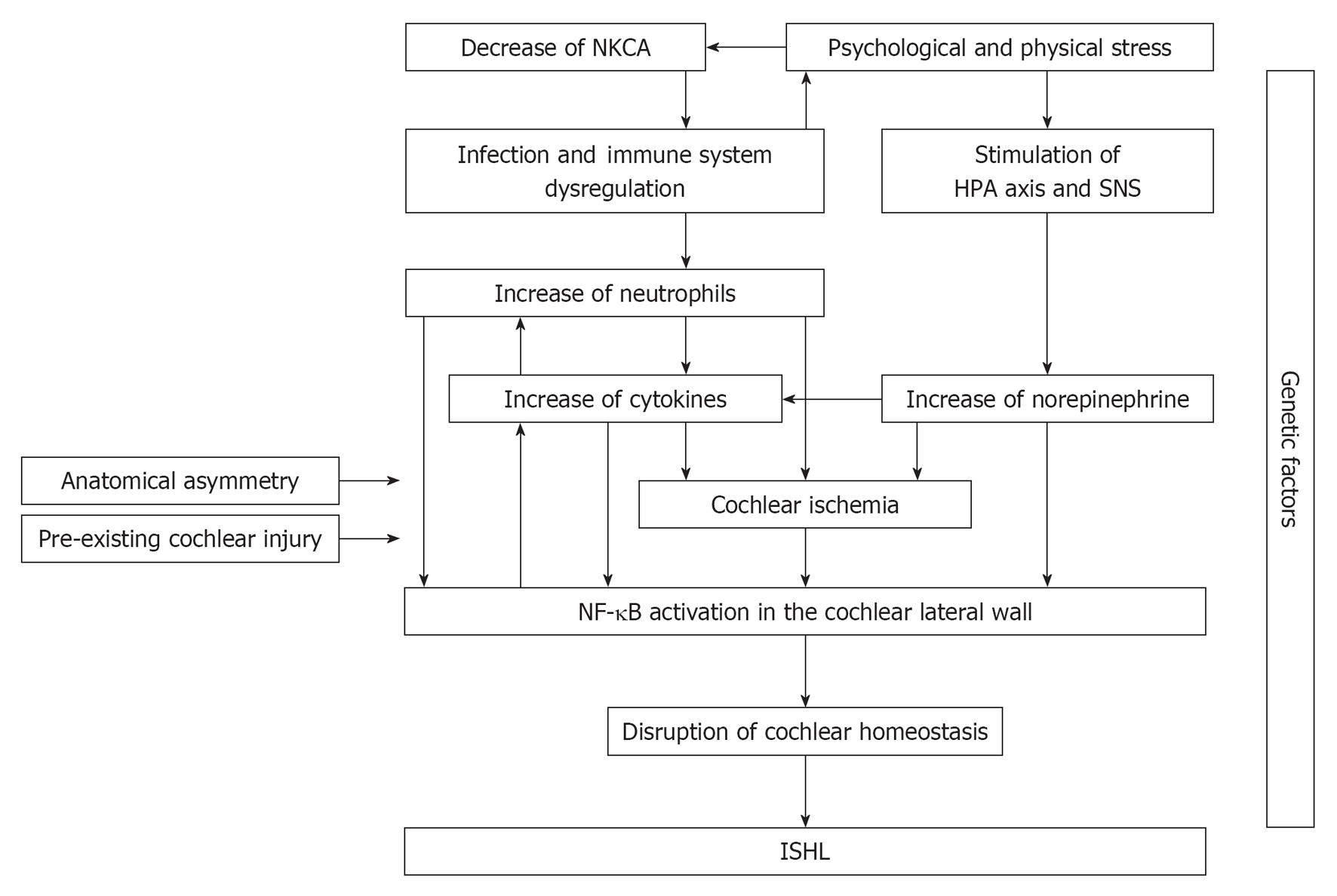Copyright
©2013 Baishideng.
World J Otorhinolaryngol. Aug 28, 2013; 3(3): 42-57
Published online Aug 28, 2013. doi: 10.5319/wjo.v3.i3.42
Published online Aug 28, 2013. doi: 10.5319/wjo.v3.i3.42
Figure 2 The stress response theory.
Synchronism of different types of stressors activate nuclear factor kappa-light-chain-enhancer of activated B cells (NF-κB) of the cochlear lateral wall and cause idiopathic sudden sensorineural hearing loss (ISHL). The causative factors should occur in order to make an effective positive feedback loop for breaking open the abnormal NF-κB activation in the lateral wall. Stressful life-events decrease natural killer cell activity (NKCA), stimulate the hypothalamic-pituitary-adrenal (HPA) axis and the sympathetic nervous system (SNS), and increase cytokines. The decrease of NKCA induces subclinical infection and/or immune system dysregulation, and then neutrophils and cytokines increase acutely, making the positive feedback loop. The acute increase of neutrophils and a cytokine like tumor necrosis factor alpha impede blood flow, resulting in acute energy failure of the lateral wall. Systemic stressors also induce and enhance norepinephrine-dependent NF-κB activation and cytokine production through the HPA axis and the SNS. They trigger the lateral wall NF-κB activation. Anatomical asymmetry, pre-existing cochlear injury, and innate factors should be involved in the flow considering the clinical characteristics of ISHL. These factors potentially explain why ISHL usually affects the ear unilaterally, why prevalence is much lower in childhood than in adulthood, and why ISHL does not affect all persons under stress. Modified from[52].
- Citation: Masuda M, Kanzaki J. Cause of idiopathic sudden sensorineural hearing loss: The stress response theory. World J Otorhinolaryngol 2013; 3(3): 42-57
- URL: https://www.wjgnet.com/2218-6247/full/v3/i3/42.htm
- DOI: https://dx.doi.org/10.5319/wjo.v3.i3.42









